Daniel Delahaye
A Unified Theoretic and Algorithmic Framework for Solving Multivariate Linear Model with $\ell^1$-norm Optimization
Apr 01, 2025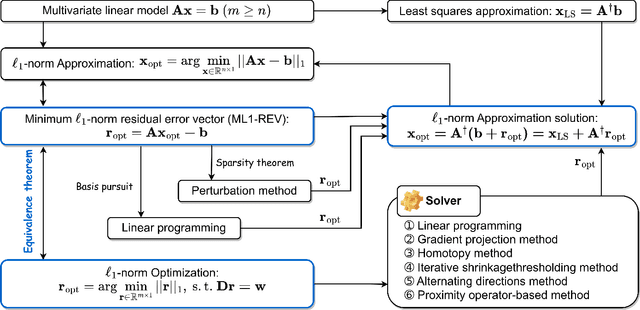
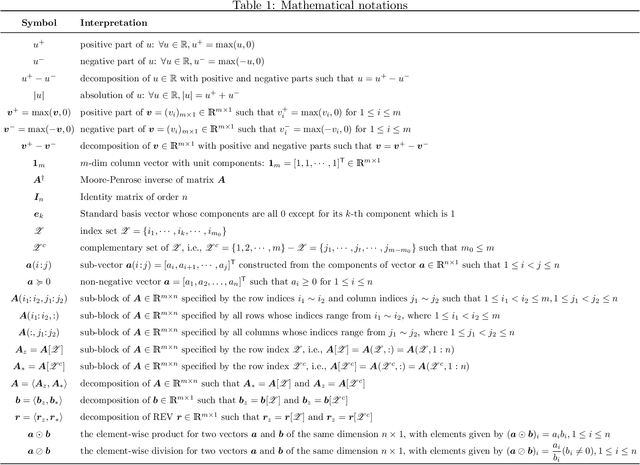
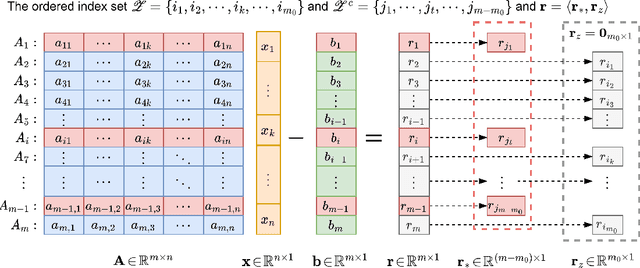
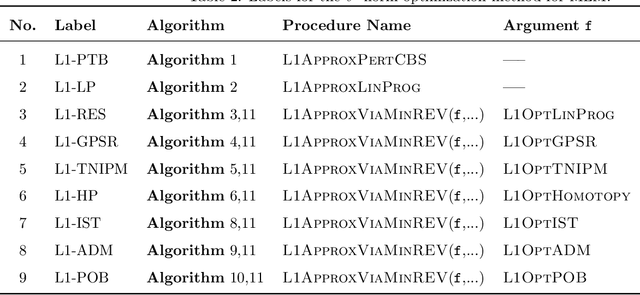
Abstract:It is a challenging problem that solving the \textit{multivariate linear model} (MLM) $\mathbf{A}\mathbf{x}=\mathbf{b}$ with the $\ell_1 $-norm approximation method such that $||\mathbf{A}\mathbf{x}-\mathbf{b}||_1$, the $\ell_1$-norm of the \textit{residual error vector} (REV), is minimized. In this work, our contributions lie in two aspects: firstly, the equivalence theorem for the structure of the $\ell_1$-norm optimal solution to the MLM is proposed and proved; secondly, a unified algorithmic framework for solving the MLM with $\ell_1$-norm optimization is proposed and six novel algorithms (L1-GPRS, L1-TNIPM, L1-HP, L1-IST, L1-ADM, L1-POB) are designed. There are three significant characteristics in the algorithms discussed: they are implemented with simple matrix operations which do not depend on specific optimization solvers; they are described with algorithmic pseudo-codes and implemented with Python and Octave/MATLAB which means easy usage; and the high accuracy and efficiency of our six new algorithms can be achieved successfully in the scenarios with different levels of data redundancy. We hope that the unified theoretic and algorithmic framework with source code released on GitHub could motivate the applications of the $\ell_1$-norm optimization for parameter estimation of MLM arising in science, technology, engineering, mathematics, economics, and so on.
On the Detection of Aircraft Single Engine Taxi using Deep Learning Models
Oct 10, 2024Abstract:The aviation industry is vital for global transportation but faces increasing pressure to reduce its environmental footprint, particularly CO2 emissions from ground operations such as taxiing. Single Engine Taxiing (SET) has emerged as a promising technique to enhance fuel efficiency and sustainability. However, evaluating SET's benefits is hindered by the limited availability of SET-specific data, typically accessible only to aircraft operators. In this paper, we present a novel deep learning approach to detect SET operations using ground trajectory data. Our method involves using proprietary Quick Access Recorder (QAR) data of A320 flights to label ground movements as SET or conventional taxiing during taxi-in operations, while using only trajectory features equivalent to those available in open-source surveillance systems such as Automatic Dependent Surveillance-Broadcast (ADS-B) or ground radar. This demonstrates that SET can be inferred from ground movement patterns, paving the way for future work with non-proprietary data sources. Our results highlight the potential of deep learning to improve SET detection and support more comprehensive environmental impact assessments.
A Reinforcement Learning Perspective on the Optimal Control of Mutation Probabilities for the (1+1) Evolutionary Algorithm: First Results on the OneMax Problem
May 09, 2019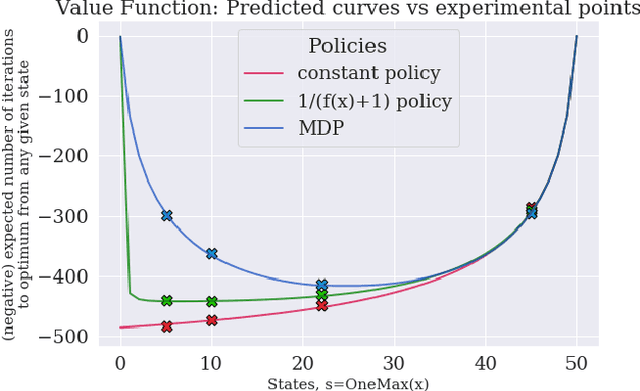
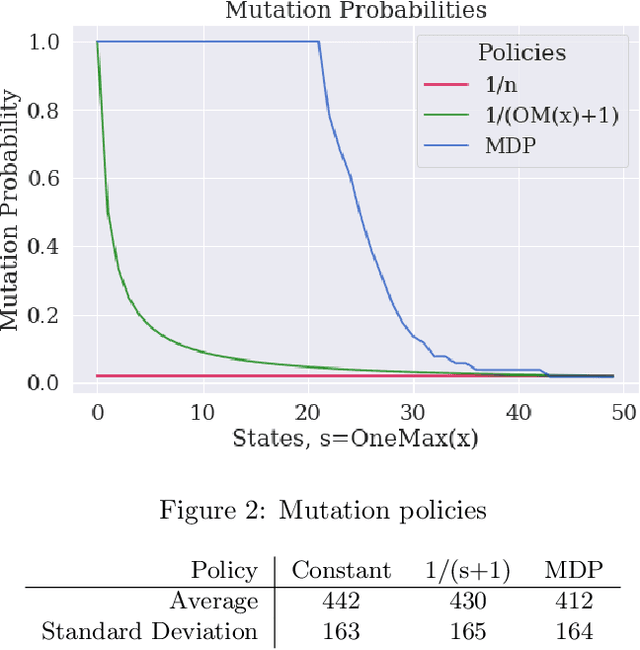
Abstract:We study how Reinforcement Learning can be employed to optimally control parameters in evolutionary algorithms. We control the mutation probability of a (1+1) evolutionary algorithm on the OneMax function. This problem is modeled as a Markov Decision Process and solved with Value Iteration via the known transition probabilities. It is then solved via Q-Learning, a Reinforcement Learning algorithm, where the exact transition probabilities are not needed. This approach also allows previous expert or empirical knowledge to be included into learning. It opens new perspectives, both formally and computationally, for the problem of parameter control in optimization.
Airport Gate Scheduling for Passengers, Aircraft, and Operation
Jan 16, 2013



Abstract:Passengers' experience is becoming a key metric to evaluate the air transportation system's performance. Efficient and robust tools to handle airport operations are needed along with a better understanding of passengers' interests and concerns. Among various airport operations, this paper studies airport gate scheduling for improved passengers' experience. Three objectives accounting for passengers, aircraft, and operation are presented. Trade-offs between these objectives are analyzed, and a balancing objective function is proposed. The results show that the balanced objective can improve the efficiency of traffic flow in passenger terminals and on ramps, as well as the robustness of gate operations.
 Add to Chrome
Add to Chrome Add to Firefox
Add to Firefox Add to Edge
Add to Edge